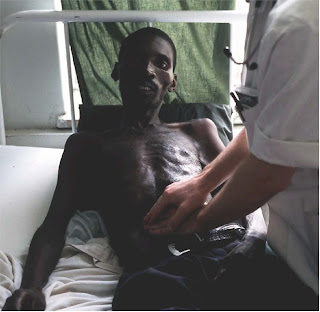
I still have a backlog of posts from the student presentations in my seminars this spring semester. One of the more interesting presentations was by Samuel Sudhe on parallels between the thinking behind the "sour grapes" proverb in Ezekiel and the thinking behind the African concept of "chira."
Chira, in Luo religion and thought, is the idea of sin-consequences. It maintains that wicked acts can both tear apart community and manifest themselves in natural catastrophes, such as droughts and famines. With chira, children can suffer when it is the parents who have sinned. As Samuel pointed out, Ezekiel's audience was claiming their sufferings in exile were due to something like chira. They tried to avoid responsibility by using their own version of chira as a sort of alibi. The parents ate the "sour grapes" but it was the children's teeth that were "set on edge."
Samuel noted that the Luo people have sometimes used chira as an alibi in a parallel way to Ezekiel's audience. He states, "For a long time the Luo people denied the existence of the devastating effects of HIV/Aids. The symptoms of HIV/Aids were confused with the wasting away of chira." It seems that you do not have to take responsibility for Aids and take steps to stop its spread, if you can fully account for it as the chira-effect of other people's sins. Chira, like Ezekiel's "sour grapes" proverb, can be used to unfortunate effect as a way for people to avoid standing up to the plate as responsible moral agents.


1 Comments:
This was the daily office reading this morning! Looking forward to hearing more about it.
-RBP
Post a Comment
<< Home